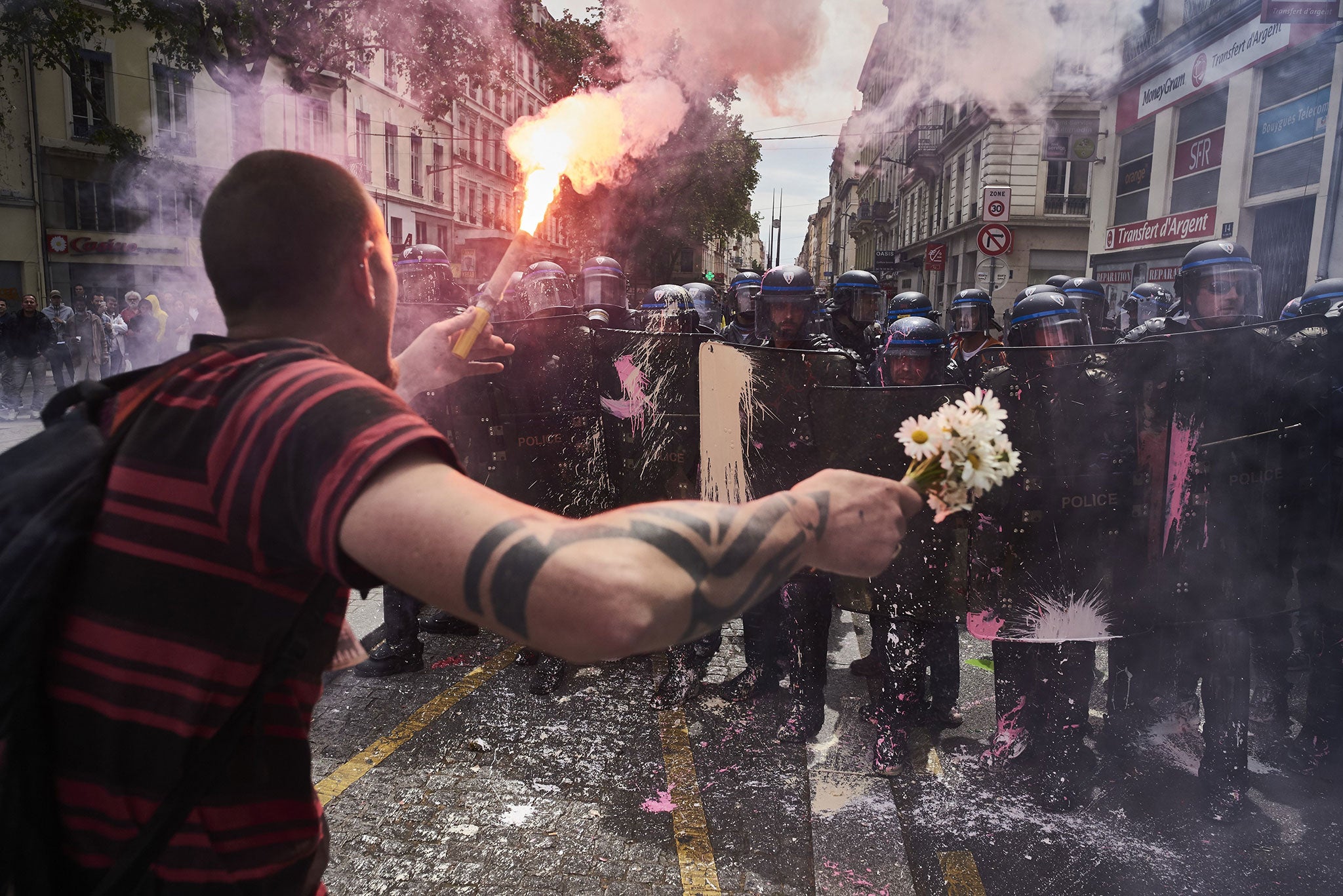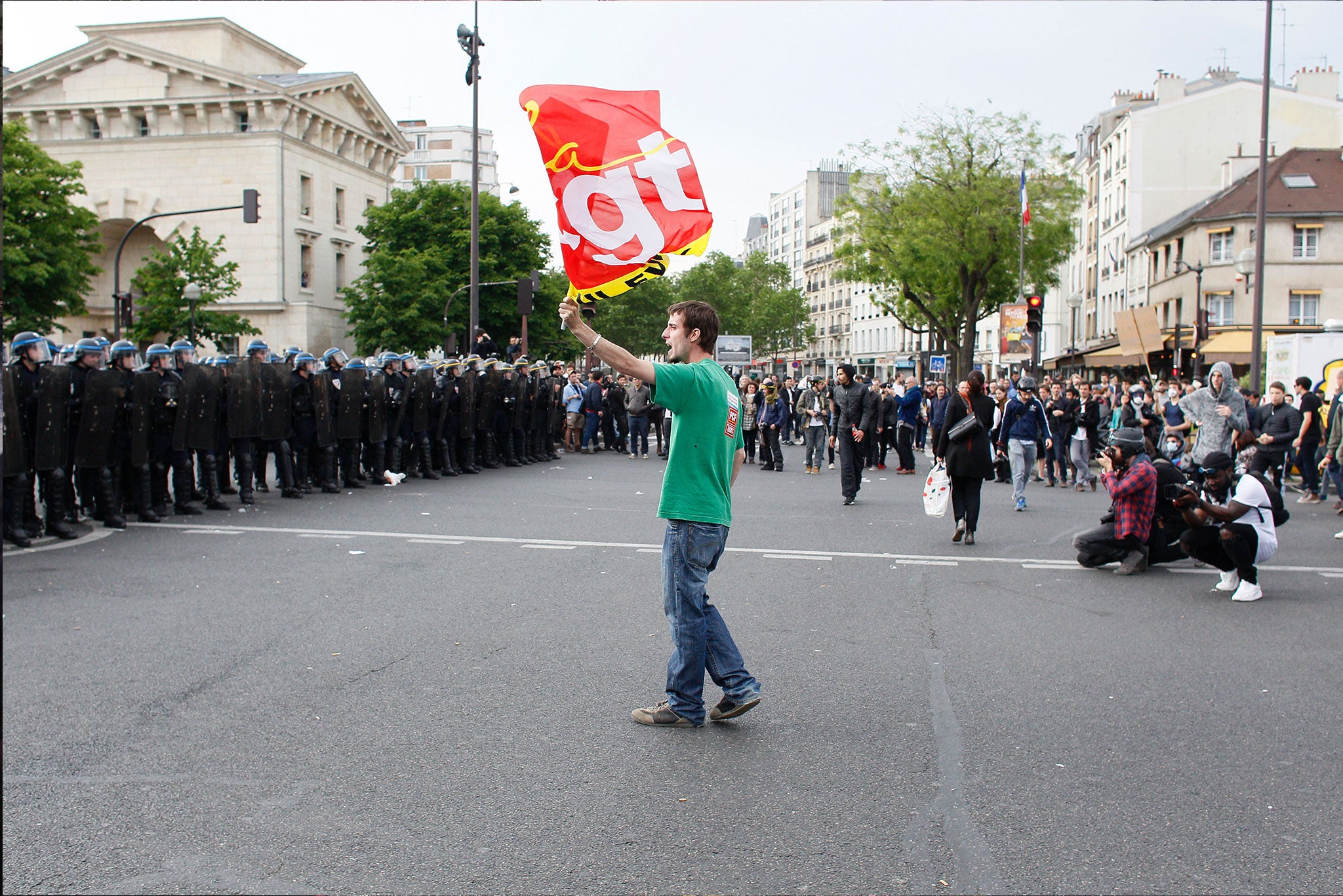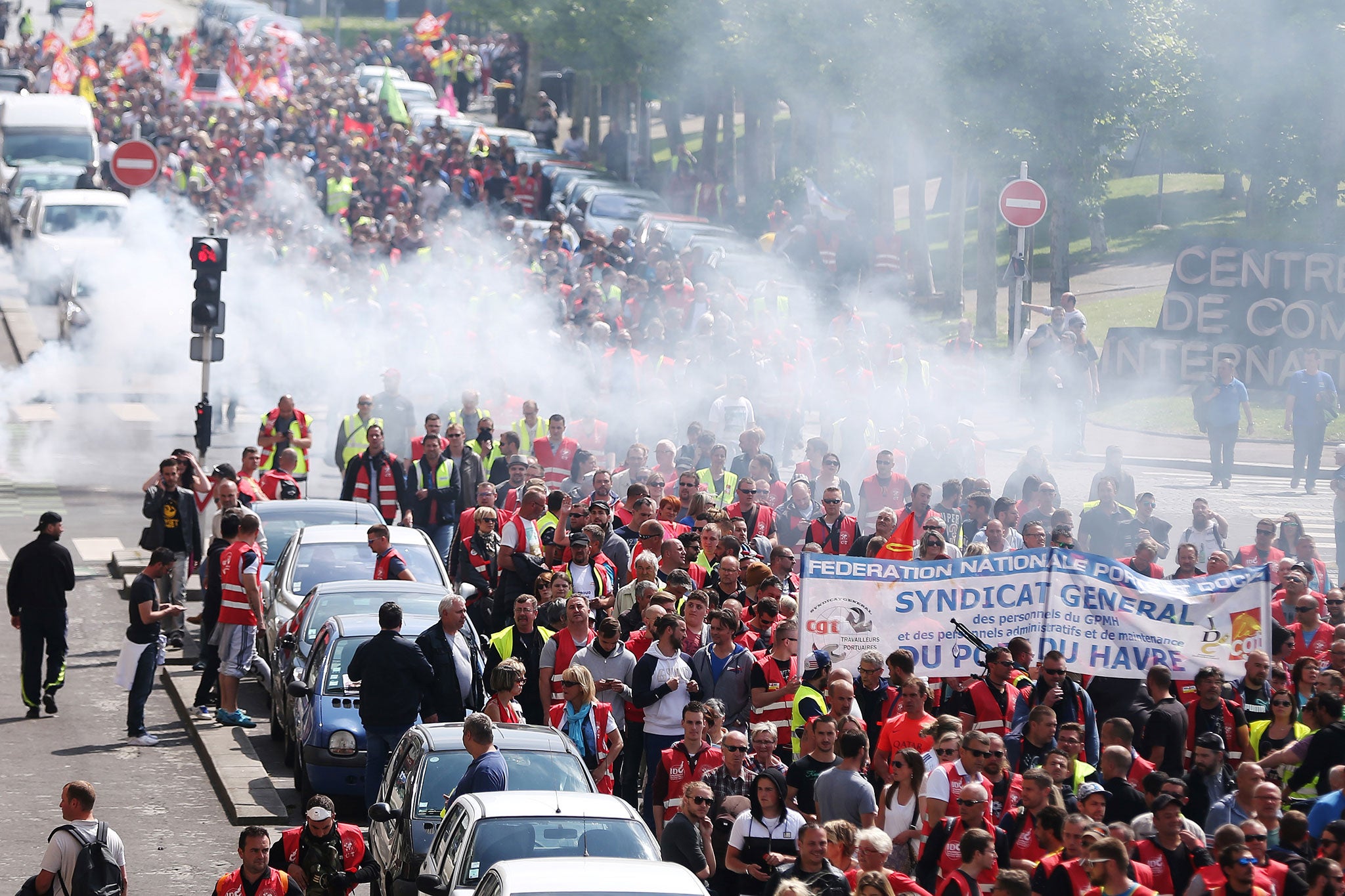France strikes: Demonstrators target power stations, refineries and transport network, but fail to paralyse the country
Hard-line CGT union must now decide whether to increase its confrontation with the government or continue with its guerrilla actions against ‘economic pressure points’

Your support helps us to tell the story
From reproductive rights to climate change to Big Tech, The Independent is on the ground when the story is developing. Whether it's investigating the financials of Elon Musk's pro-Trump PAC or producing our latest documentary, 'The A Word', which shines a light on the American women fighting for reproductive rights, we know how important it is to parse out the facts from the messaging.
At such a critical moment in US history, we need reporters on the ground. Your donation allows us to keep sending journalists to speak to both sides of the story.
The Independent is trusted by Americans across the entire political spectrum. And unlike many other quality news outlets, we choose not to lock Americans out of our reporting and analysis with paywalls. We believe quality journalism should be available to everyone, paid for by those who can afford it.
Your support makes all the difference.The most concerted challenge so far to reforms in French labour law produced widespread disruption and scattered violence on Thursday but failed to bring the country, or the government, to its knees.
Newspapers, ports, power stations, trains, planes, refineries, roads and bridges were targeted by strikes or blockades organised by the hard-line Confédération Générale du Travail (CGT) union federation. Demonstrations in Paris and other large cities were scarred by violent clashes between a fringe of anarchist and hard left protesters and the riot police. In one incident in Paris, a blazing supermarket trolley was propelled by hooded and masked demonstrators into a police barrier.
Riot police also used tear gas to disperse crowds who attacked shop fronts in central Paris. Police said on Thursday night that they had made at least 16 arrests during the disturbances in the capital.
The strikes failed, however, to paralyse the country. Most trains and planes ran normally. There were no significant power cuts.
The fuel blockade and panic buying which closed one in three filling station earlier in the week appeared, however to be worsening.
Marches against the Socialist-led government’s proposals to make French labour laws more business-friendly and less rigid attracted tens of thousands of supporters – but fewer than the organisers had hoped for.
The CGT, the largest and oldest of France’s eight different union federations, now faces an awkward choice.
The CGT has seized the leadership of a disparate movement of the traditional and hard left which bitterly opposes the labour law reforms. More moderate parts of France’s much splintered labour movement, including the second largest federation the CFDT, strongly support the changes.
Does the CGT now try to extend and harden its confrontation with the government? Or does it continue with its guerrilla actions against “economic pressure points” such as refineries and fuel depots which have caused severe problems since the weekend?
President François Hollande and his Prime Minister, Manuel Valls, also face a difficult strategic decision. Does the government hold firm and risk embarrassing disruption during the Euro 2016 international football championship which France stages for a month from 10 June? Or does it offer concessions in the hope of giving the CGT an exit strategy?
The government put out mixed signals on Thursday. The finance minister, Michel Sapin, suggested that parliament could be asked to “look again” at some aspects of the clause which most incenses the CGT: plans to allow local management-worker deals to supersede national union agreements and some aspects of national labour law.
Prime Minister Valls, backed later by President Hollande who is visiting Japan, said that there was no question of this principle being abandoned. He did, however, open the door to some “modifications” and “improvements” when the draft law comes back to the national assembly next month.
Mr Valls was mostly, however, in uncompromising mood. He said that the dispute raised the fundamental question of who runs France, the government or the protesters. “If we withdrew these proposals, it would be an admission that this country cannot be governed,” he said. “This country is dying from the impossibility of reform.”

Up to 75 per cent of French people oppose the employment law reforms, according to opinion polls. Nonetheless, the unpopular Mr Hollande and Mr Valls hope that that the rare spectacle of a French government holding firm against strikes and street protests might offer some prospect of electoral salvation when the country votes for a new president and parliament next year.
Thursday’s concerted “day of action” was regarded by both sides as pivotal. On the whole, the government will have been reassured by the outcome.
Although the CGT had called out its workers in 16 out of 19 of the country’s power stations, there were no systematic power cuts. Three out of four high speed trains and six in ten other trains operated despite a CGT-inspired strike in the state owned French railways.
An air traffic control strike forced the cancellation of 15 per cent of flights at Orly and Charles de Gaulle airport in Paris. It also forced the cancellation of some flights due to cross French air space.
The shortage of petrol and diesel caused by CGT blockages at fuel depots and refineries appeared to be worsening despite the government decision to break into its three months “strategic” fuel reserves earlier this week. Up to 40 per cent of filling stations were said to be out of fuel or running very low by Thursday night.
In Paris, a group of hooded hard-left and anarchist youths broke away from the main march and smashed the windows of shops and a supermarket. The letter “A” for anarchy was sprayed in red paint on the damaged buildings.
The fringe of violent protesters also threw bottles and stones at riot police, who responded with tear-gas, stun grenades and baton charges. They shoved a blazing supermarket trolley at police lines. The main march – 18,000 strong according to police, 100,000 according to the organisers - passed off peacefully.

Earlier, a 51-year-old picketer was gravely injured when he was struck by a car which charged through a barricade near a refinery at Fos-sur-Mer east of Marseilles. The injured man was taken to hospital by helicopter. A 25-year-old man later surrendered to police.
Meanwhile, thousands of dock workers poured into the square in front of the city hall of the French port city of Le Havre, setting off smoke bombs throughout the area.
Join our commenting forum
Join thought-provoking conversations, follow other Independent readers and see their replies
Comments